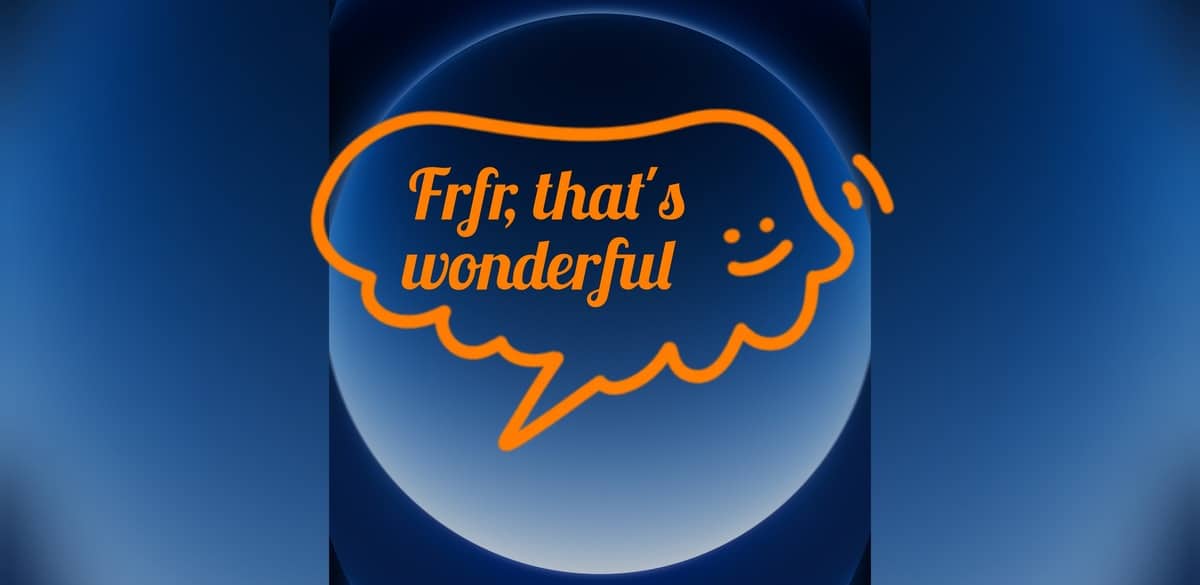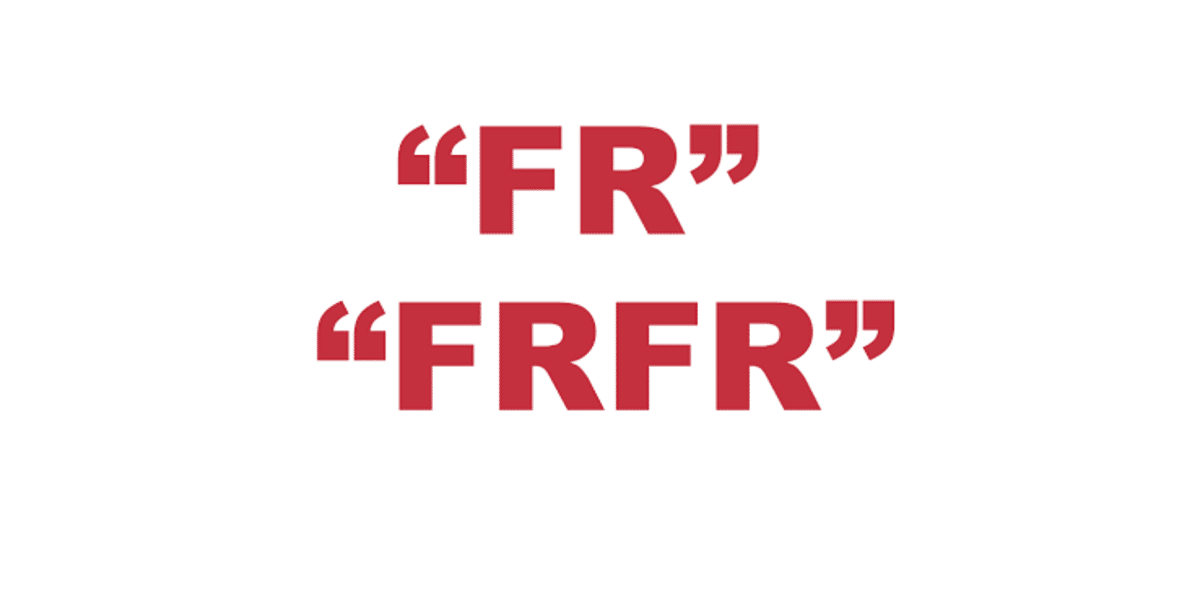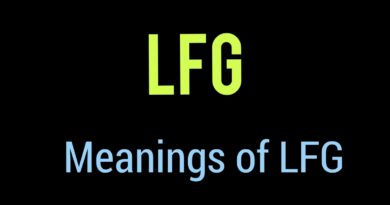What Do “FR” and “FRFR” Mean?
If someone tells you they’re “FR,” or “FRFR” it means they want you to take them seriously. Whether you’ve encountered them online or in your text messages, it’s essential to grasp the context and purpose behind these acronyms to effectively communicate with others.

In this guide, we’ll delve into the meanings of FR and FRFR and how to use them effectively in your posts and messages.
What “FR” and “FRFR” Entails
FR is a short form of “for real.” It’s an initialism commonly used on the internet to emphasize your point, agree with someone else, or react to something unbelievable. There’s also a more intense version of FR called FRFR, which stands for “for real, for real.”
Both FR and FRFR can be written in uppercase or lowercase. However, the lowercase versions (“fr” and “frfr”) have become more popular due to the prevalence of direct messaging.
A Brief History of FR
The phrase “for real” predates its acronym version. According to the Collins Dictionary, it gained popularity in the 80s and 90s and appeared in various forms of pop culture, including movies and songs. In the early 2000s, “for real” became a commonly used term, and its acronym version soon followed.
The first definition of FR on the internet slang database Urban Dictionary dates back to 2003 and simply states “for real.” The modified acronym FRFR appeared later in 2010, defined as “for real, for real.”
Questioning and Confirming
An interesting aspect of FR is that it can function both as a question and an answer. Its usage derives from the original idiomatic phrase. When spoken aloud, you might say “for real?” in response to something incredulous. Conversely, you can use “for real” to confirm something or emphasize your point.
These definitions also apply to the initialism form. For example, if your friend tells you they’re filming the next James Bond movie near your house, you might respond with “No way, fr?” to express disbelief. Alternatively, if you want to convey that someone needs to stop acting immature, you could message them, “You need to stop being childish, fr.”
As for FRFR, it represents a more intense version of the latter definition. It is akin to saying “no BS” or “no bullsh*t.” You would use it when others doubt the veracity of what you’re saying, emphasizing the need for them to believe you. For instance, if you’re accused of leaking plans for a surprise birthday party, you might send the message, “I didn’t do it, FRFR!”
Another Meaning of FR
While FR generally signifies “for real” in informal contexts like tweets or personal text messages, it can have an entirely different meaning across the internet.
A common alternative definition for FR is the short form of “France” or the French language. Many websites include language selectors allowing you to switch to FR to view content in French, typically accompanied by a French flag. Additionally, selecting the “FR” option on certain websites may direct you to French-specific content, as regional variations exist.
When written in lowercase, “fr” serves as the top-level domain (TLD) for France. As a result, many French websites end with “.fr.” It can also refer to France’s former currency, the “franc,” which was replaced by the Euro in 2002. Lastly, “Fr” can be an abbreviation for “father,” used as a title for Catholic priests.
How To Use FR and FRFR
To incorporate FR and FRFR into your messages effectively, add them to strengthen or emphasize your point. When using FR as a question, remember to conclude with a question mark. It’s advisable to avoid employing these acronyms in professional or workplace settings. Both uppercase and lowercase versions are acceptable, but lowercase usage has become more prevalent in recent times.
Here are a few examples of FR and FRFR in action:
- “No way, frfr? That’s amazing!”
- “I promise I didn’t cheat on her, frfr.”
- “Dude, fr, I can’t believe it myself”
- “Are you serious fr?”
Final Words
Both FR and FRFR are internet acronyms used to emphasize your point, agree with someone, or react to something unbelievable. They can function both as questions and answers, and FRFR is a more intense version of FR. When using these acronyms in your messages, remember to use them to strengthen or emphasize your point, and consider the context in which you are using them.



